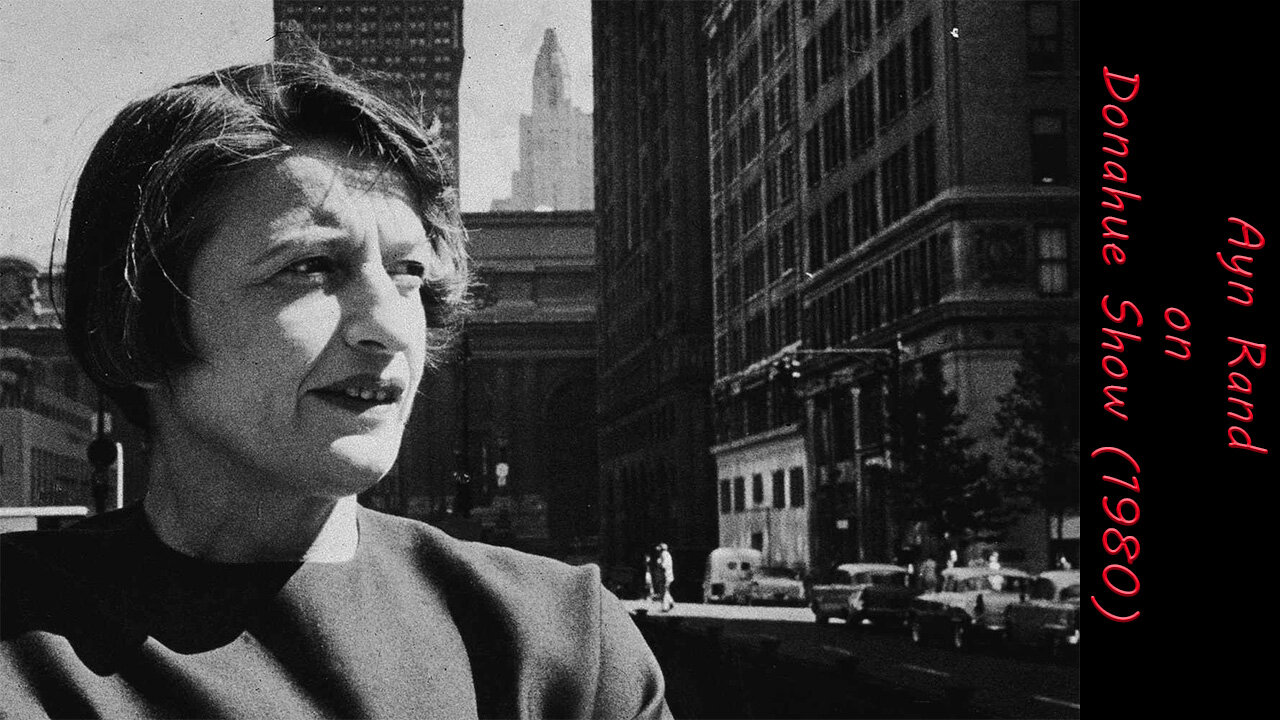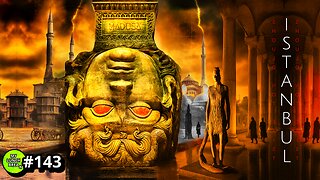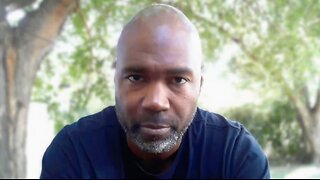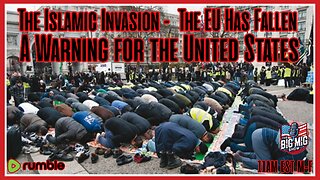Premium Only Content

Ayn Rand on Donahue Show (1980)
Ayn Rand’s 1980 appearance on The Phil Donahue Show—her final televised interview before her death in 1982—is a striking cultural moment. It captures the famed author and philosopher confronting a mass audience near the end of her life, defending her controversial ideas with undiminished intellectual clarity and characteristic sharpness. The episode offers not just a platform for Objectivism, but a revealing study of Rand’s public persona—unyielding, confrontational, yet often surprisingly humorous and composed.
Setting the Stage: Phil Donahue’s daytime talk show was, at the time, one of the most widely viewed platforms for public debate in the United States. Known for inviting provocative guests, Donahue provides Rand with a forum to address a mainstream American audience. From the start, there's a sense of ideological tension: Rand is no typical daytime guest. Her worldview is unapologetically individualistic, pro-capitalist, and anti-altruist—views that collide with much of the conventional moral wisdom of the general public.
The audience, consisting of average Americans, frequently challenges her with questions that reflect common concerns: “What about the poor?”, “Don’t we have a duty to others?”, “Isn’t selfishness bad?” Rand faces each question head-on.
Key Themes and Responses:
1. Selfishness and Altruism: Perhaps the most charged exchanges revolve around Rand’s defense of rational selfishness and her denunciation of altruism. She clarifies that she doesn’t mean selfishness as mindless greed or exploitation, but as rational self-interest guided by reason, independence, and long-term values. Her position is that each individual is an end in themselves, and no one should live for the sake of another.
When audience members press her—bringing up issues like helping the poor, charity, or collective responsibility—Rand retorts that altruism, as a moral obligation to serve others, is destructive. She allows for voluntary kindness, but only when it serves the giver’s own values and not as a duty imposed by society.
2. Capitalism and Government: Rand calls capitalism the only moral system, as it respects individual rights and voluntary exchange. She equates government regulation with coercion and likens taxation to theft, arguing that the state should exist only to protect individual rights—mainly through the police, courts, and national defense.
When Donahue pushes back with examples of poverty, inequality, or the suffering of children, Rand remains unmoved. Her focus is philosophical: need, she insists, is not a claim on another’s life or earnings.
3. Religion and Morality: Rand openly identifies as an atheist, asserting that reason is man’s only means of knowledge, and that faith is the opposite of thought. She argues that religious morality, especially the notion of self-sacrifice, underpins the cultural hostility toward rational self-interest.
An audience member challenges her moral credibility without God. Rand responds that morality comes from man's nature and his need to live rationally—not from divine command. Her rejection of mysticism is firm, but she doesn't descend into ridicule; instead, she emphasizes personal integrity and logic as the foundations for ethics.
4. Feminism and Gender: Donahue, probing with sensitivity, asks about Rand’s views on feminism. Rand, who famously said a woman shouldn’t want to be president (because of her belief in male romantic dominance), repeats that she believes in individual rights for women, but does not support the feminist movement as it existed. She finds it "phony" and motivated by resentment rather than justice.
She holds that women should be free to achieve anything—but not by portraying men as enemies. Her views on femininity remain controversial and rooted in a romanticized idea of heroic masculinity.
5. Cultural Decline and Intellectuals: Rand criticizes modern culture, including art, literature, and academia, accusing them of embracing irrationalism, subjectivism, and nihilism. She particularly attacks modern art and philosophy as symptoms of a broader moral collapse.
She mourns the state of education, claiming that young people are not taught how to think, but instead how to obey group values and reject reason. Here, she returns to one of her core concerns: that Western civilization is dying because it has abandoned the Enlightenment values of reason and individualism.
Tone and Persona: Throughout the show, Rand is commanding but never bombastic. She responds to hostile questions with a mix of dry wit, steely logic, and sometimes unexpected grace. When asked if she believes in love, she says yes—passionately—but only when it's earned. When a woman challenges her with a moralistic tone, Rand responds calmly: “I don't tell anyone to be selfish. I tell them to think.”
She laughs at points, is visibly amused by Donahue’s charm, and never retreats from a question. Despite her severe philosophy, she shows moments of personal warmth and humanism, particularly when speaking about creativity, integrity, and admiration for greatness.
Legacy and Significance: This 1980 Donahue appearance is a fascinating late-period portrait of Ayn Rand—still combative, lucid, and uncompromising at 75. For admirers, it confirms her intellectual fearlessness. For critics, it may reinforce the image of a cold rationalist. But either way, it is essential viewing for anyone interested in American political philosophy, post-war intellectual history, or the personality behind Atlas Shrugged and The Fountainhead.
It also reveals Rand’s peculiar ability to remain an outsider—hostile to both leftist collectivism and traditional conservatism—while still exerting enormous cultural influence. Here is a woman attacking both religion and welfare, feminism and altruism, art and academia—yet doing so from a principled, consistent moral framework.
Conclusion: Ayn Rand on Donahue in 1980 was not a philosopher hiding in books, but a woman standing her ground in the democratic arena of public opinion. Her appearance is a compelling performance of conviction: unsoftened, deeply polarizing, and yet filled with intellectual challenge. Whether one agrees with her or not, it is impossible to watch without being provoked to think—and that, for Rand, was always the point.
-
 23:23
23:23
MYLUNCHBREAK CHANNEL PAGE
21 hours agoIstanbul Should Not Exist - Pt 1
33.1K22 -
 1:27:40
1:27:40
Jeff Ahern
5 hours ago $8.26 earnedThe Saturday Show With Jeff Ahern
72.3K28 -
 31:55
31:55
Chris Harden
7 days ago $0.94 earnedChattanooga | Overrated or Underrated?
13K2 -
 11:08
11:08
JohnXSantos
1 day ago $0.41 earnedI Challenged AI to Build a Viral Product From Scratch
13.6K3 -
 0:39
0:39
Danny Rayes
23 hours ago $1.56 earnedHis Grandma Thinks He's Innocent!
14.2K12 -
 8:39
8:39
Rethinking the Dollar
8 hours agoSilver Is Rising Fast — But I’m Struggling to Buy More
11.8K6 -
 1:43:14
1:43:14
The Quartering
6 hours agoMassive Charlie Kirk Bombshell! We Knew It!
126K386 -
 2:28:32
2:28:32
MattMorseTV
8 hours ago $39.57 earned🔴Revealing his TRUE MOTIVES.🔴
71.6K196 -
 1:18:02
1:18:02
iCkEdMeL
6 hours ago $20.44 earnedBOMBSHELL: Shooter’s Trans Partner Helped Take Him Down
51.1K74 -
 1:42:45
1:42:45
The Big Mig™
11 hours agoThe Islamic Invasion – The EU Has Fallen, A Warning For The USA |EP653
57.1K60